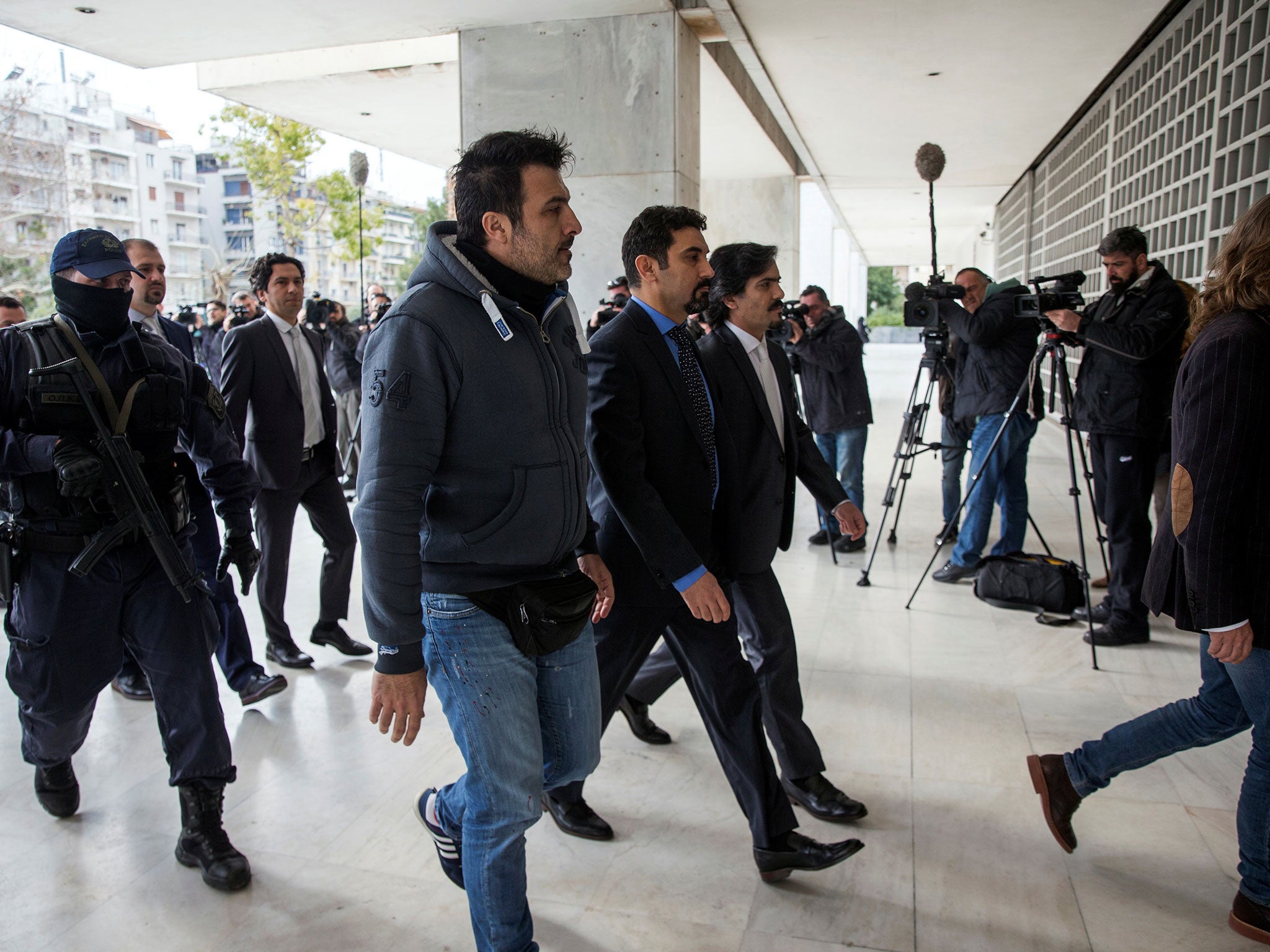Turkey angered as Greece blocks extradition of soldiers over coup attempt
Turkey says it will ‘use all avenues of law’ to ensure the soldiers’ extradition and prosecution

Your support helps us to tell the story
From reproductive rights to climate change to Big Tech, The Independent is on the ground when the story is developing. Whether it's investigating the financials of Elon Musk's pro-Trump PAC or producing our latest documentary, 'The A Word', which shines a light on the American women fighting for reproductive rights, we know how important it is to parse out the facts from the messaging.
At such a critical moment in US history, we need reporters on the ground. Your donation allows us to keep sending journalists to speak to both sides of the story.
The Independent is trusted by Americans across the entire political spectrum. And unlike many other quality news outlets, we choose not to lock Americans out of our reporting and analysis with paywalls. We believe quality journalism should be available to everyone, paid for by those who can afford it.
Your support makes all the difference.Greece’s Supreme Court has ruled against the extradition of eight Turkish soldiers who fled to Greece in July after a failed coup attempt in Turkey, a decision which angered Ankara and further strained relations between the two neighbours.
Turkey has demanded Greece extradite them, alleging they were involved in the coup attempt and has branded them traitors.
The men – three majors, three captains and two sergeant-majors – landed a helicopter in northern Greece on 16 July and sought political asylum saying they feared for their lives in Turkey.
The soldiers deny playing a role in the attempt to oust President Recep Tayyip Erdogan, which led to a purge of the military and civil service.
“The possibility of their rights being violated or reduced regardless of the degree of guilt or the gravity of the crimes they are accused of does not allow the implementation of extradition rules,” a Supreme Court president said.
The soldiers have been kept in protective custody pending final decisions on their asylum applications in Greece. Their lawyer Christos Mylonopoulos said the verdict was “a big victory for European values”.
But the decision brought an angry response from the Turkish foreign ministry, which accused Greece of protecting plotters and said relations between the two countries would be reviewed.
Turkey would “use all avenues of law” to ensure the soldiers’ extradition and prosecution, it added.
“Once again Greece, an ally and a neighbour, has failed to fulfil the basics of the fight against terrorism,” it said.
“The impact of this decision thought to be made with political motives on our mutual ties, our cooperation in the fight against terrorism and our work on other mutual and regional issues will be subject to a comprehensive review.”
The state-run Anadolu news agency reported earlier that Turkish authorities had issued arrest warrants for the soldiers.
The soldiers have been accused in Turkey of attempting to abrogate the constitution and dissolve parliament, seizing a helicopter, using violence and attempting to assassinate Mr Erdogan.
Relations between Greece and Turkey, neighbours and NATO allies, have improved over the years but they remain at odds over territorial disputes and ethnically split Cyprus. In 1996, they almost reached the brink of war over an uninhabited islet.
The two countries play an important role in the handling of Europe’s worst migration crisis in decades and the EU depends on Ankara to enforce a deal to stem mass migration to Europe.
Reuters
Join our commenting forum
Join thought-provoking conversations, follow other Independent readers and see their replies
Comments